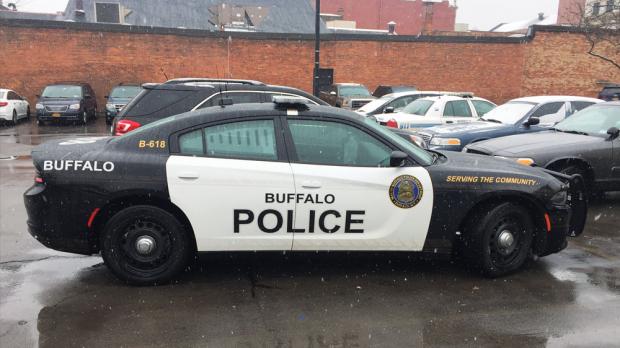Buffalo Police Overtime Earnings Balloon
Overtime in the Buffalo Police Department has risen 60 percent since 2014, with a disproportionate number of overtime being spent on the department’s Strike Force unit.
The unit (at the center of scrutiny in this publication) is also home to some of the highest-paid employees in the city. Officers on Strike Force represent six of the highest-paid 10 city employees, earning salaries that rival and exceed those of school principals, judges, and Mayor Byron Brown.
Twelve of the BPD’s highest 50 salaries belong to Strike Force, ranging from $150,000 in projected earnings by the end of the fiscal year in June to over $200,000 by the top six. BPD payroll data is made available by an online transparency database maintained by the office of Comptroller Mark J. F. Schroeder.
While base salaries of those highest six Strike Force employees average around $77,000, the officers will make up the difference in overtime earnings.
Strike Force, as defined by Michael Acquino last month during sworn testimony at a suppression hearing in federal court, “basically involves taking guns off the street, gang intel, drugs. We do a regular checkpoint every day. We work with multiple agencies, FBI Safe Streets, our narcotics unit, our intelligence unit.”
Those checkpoints and other BPD tactics have been called into question by legal scholars as being in violation of Fourth Amendment protections against government search and seizure. And Strike Force has also been known for dealing with so-called “zero tolerance” issues like code violations and traffic citations.
“Based on Buffalo Strike Force logs, media reports, and anecdotal accounts BPD officers frequently investigate and search drivers without any clear justification,” claims University at Buffalo law professor Anjana Malhotra, who has been studying Buffalo police policy. Malhotra argues that BPD pattern and practice violate landmark Supreme Court rulings and federal legislation that govern police interaction with members of the public.
While excessive overtime earnings of police and fire departments are nothing new in Buffalo—or any municipality where such services are governed by union contracts and a protracted recruitment process—police overtime was specifically targeted in a September 2016 audit by Schroeder’s office. That audit called on the BPD to hire more officers so that rein in costs and to create a finance director position over the BPD to keep the department more fiscally responsible.
“We think [the position] would be valuable but the commissioner doesn’t think so. I don’t know what else to add to that,” Patrick Curry in the comptroller’s office reiterated to The Public last week.
Overtime costs have risen from $12.1 million in 2014 to $15.6 million in 2016 are on track to top $20 million for 2017. In an attached response, BPD Commissioner Daniel Derenda wrote that they are working on recruitment to fix these issues and that he found the position of finance director would constitute an “unwarranted additional expense.”
Sixty officers were sworn in last Friday, and another class of 60 are coming up behind them. While the comptroller expects the department’s overtime figures to go down as more police come on line, an area that Curry suggested could be fixed “pretty quickly” are civilian support positions such as janitors and mechanics. “The top four earning job titles and 15 of the top 20 are civilian,” Curry said. “These are areas we believe they could cut down on OT now.”
Staffing vacancy has led to the overtime increase department wide, and with more overtime comes more arrests. Due to the nature of their assignments, Strike Force is already in position to make more arrests, and more arrests means more overtime when officers have to appear in court.
Could police officers be arresting more to take advantage of the overtime bonanza? Attorney Frank Housh doesn’t believe it. An assistant district attorney for nine years, Housh says he never got “that feeling that cops made an arrest to get their court shot,” using an occupational expression for the flat fee paid to officers to appear in court.
“You may be right that Strike Force are doing more arrests, but that’s their role,” he said. “In basketball, Kobe Bryant gets the most shots because he’s the best scorer.”
What concerns Housh more as a “civil libertarian” isn’t whether police are making arrests for reasons of financial gain, but the appearance of impropriety itself. And the public costs associated with arrests. “Just like in Ferguson where the criminal justice system made more money the more people they arrested and the cost of maintaining law and order fell upon the people, and not so much on the people they arrested.”
The public cost of arrests are high. By way of illustration, a 2013 study by the ACLU found that a low-level estimate for the public cost of a single arrest for marijuana was $750.
N.B. Speaking of marijuana, it did not escape the attention of local cannabis advocates that among Governor Andrew Cuomo’s State of the State policy proposals was a call to decriminalize low-level marijuana possession. They, along with social justice advocates, expect to attend the Buffalo Common Council’s Police Oversight Committee meeting that occurs as this paper goes to press.

